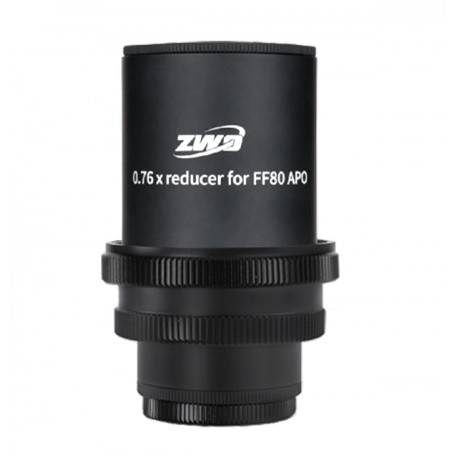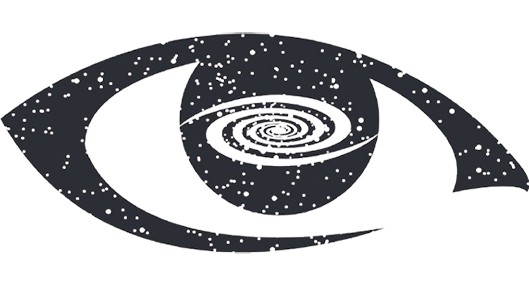No products
Prices are tax included
 View larger
View larger
ZWO 0.76x Reducer for FF80 Refractor
ZWO REDUCTEUR 0.7X FF80
New product
ZWO 0.76x Reducer for FF80 Refractor
ZWO 0.76x reducer and flattener for FF80 refractor. Increases field of view, reduces exposure time. Flat field for full-frame astrophotography.
2 Items
Available.
More info
ZWO 0.76x Reducer for FF80 Refractor
Description:
The ZWO 0.76x reducer for the FF80 refractor shortens the focal length from 600 mm (F/7.4) to 456 mm (F/5.7), resulting in a faster, wider-field astrograph. It improves both efficiency and imaging coverage, making it ideal for wide-field astrophotography.
This dedicated reducer also serves as a field flattener. Its 3-element design, including one ED (Extra-low Dispersion) lens, ensures stars remain sharp and round across the entire image circle—even in the corners. Optical aberrations and field curvature are effectively corrected.
The reducer fits directly into the 68 mm focuser of the ZWO FF80. It provides multiple male thread outputs for camera connection: M68 x 1 mm, M54 x 0.75 mm, or M48 x 0.75 mm. The M48 adapter includes an internal female thread for 2" filters. Recommended backfocus is 55 mm from the M48 thread.
This reducer is an excellent upgrade for FF80 users looking to increase image coverage while maintaining top-notch optical correction and compatibility with full-frame sensors.
Technical specifications:
-
Reduction factor: 0.76x
-
Resulting focal length: 456 mm (on FF80)
-
Resulting focal ratio: F/5.7
-
Optical design: 3 elements (1 ED lens)
-
Coating: multi-coated on all surfaces
-
Barrel diameter: 68 mm
-
Body length: 75 mm (excluding adapter rings)
-
Telescope side thread: female M64 x 0.75 mm
-
Camera side thread (main body): male M68 x 1 mm
-
Adapter ring 1: female M68 to male M68
-
Adapter ring 2: female M68 to male M54
-
Adapter ring 3: female M54 to male M54
-
Adapter ring 4: female M54 to male M48 (with internal M48 filter thread)
-
Ideal backfocus: 55 mm (from M48 thread)
Additional information:
The ZWO 0.76x reducer is tailored for optimal performance with the FF80 refractor. It expands sensor coverage while maintaining sharp stars and minimal chromatic aberration. With multiple adapters included, it integrates smoothly into modern astrophotography setups.

